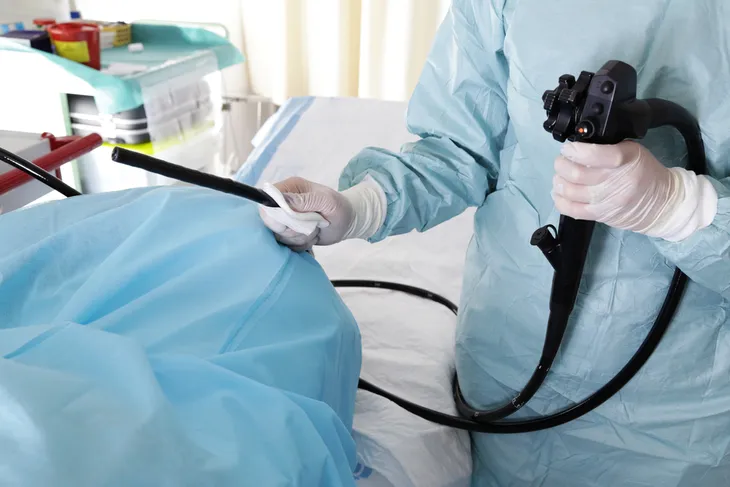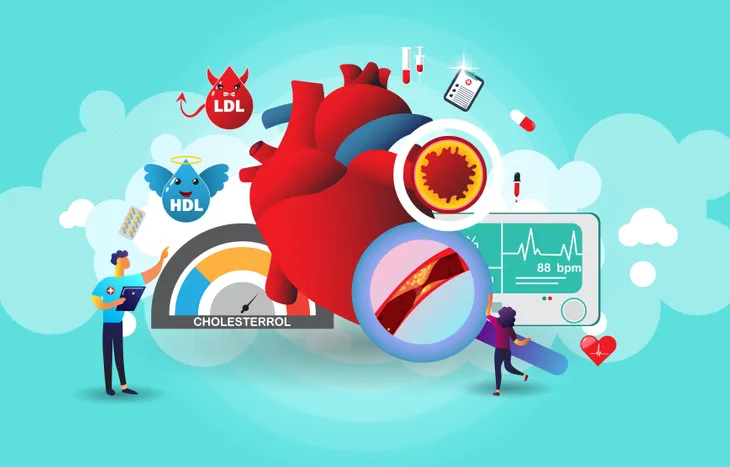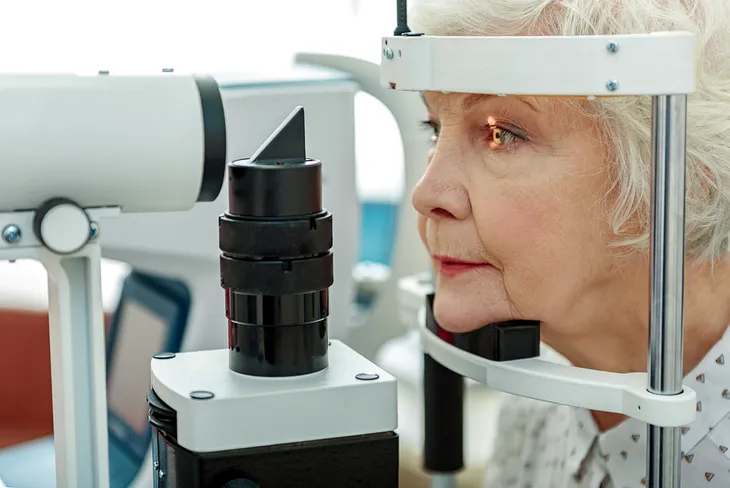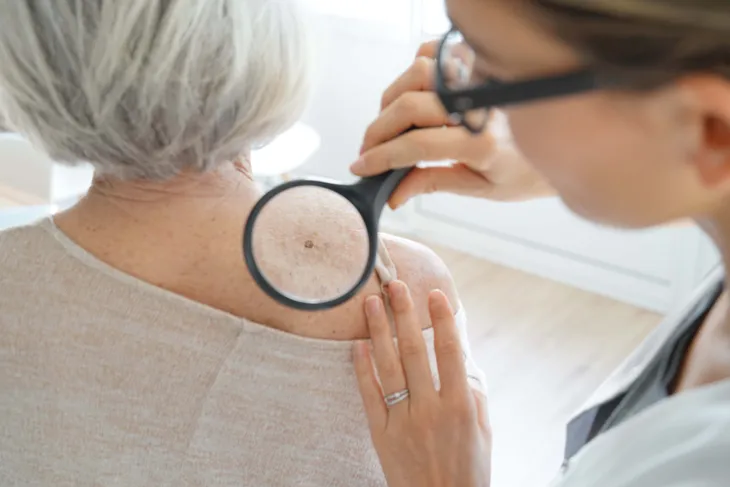As we age, our bodies change and need different tests and screenings than they did when we were younger. Some screenings and tests are done during your annual check-up, whereas others will need special appointments to have them done. In either case, the screenings and tests we’ll cover are an important step to ensure you continue to lead a healthy and active lifestyle.
When you visit your doctor for your annual check-up, you shouldn’t be afraid to ask which tests or screenings you are due for. If you think you’d benefit from one that your doctor hasn’t mentioned, ask if it is right for you. We’re here to tell you all of the important screenings and tests every senior should get and why they are important to you and your health.
Want senior content delivered straight to your inbox? Sign up for our exclusive email list and receive articles and news on diet & nutrition, fitness, and mental health dedicated specifically to our senior audience!
Osteoporosis Screening
Osteoporosis is a condition where the bones become thin and brittle, making them more prone to breaking. Bones are constantly reabsorbing old bone and producing new bone. “Bone loss occurs when more old bone is reabsorbed than new bone is created,” states MedlinePlus. A bone density test (also called a dual-energy X-ray absorptiometry [DXA] scan) measures your bone mineral density (BMD) using a special type of X-ray. This is the gold standard test for the diagnosis of osteoporosis.
Women over 64 years of age should have a DXA scan, and men over 70 years of age who also have risk factors for osteoporosis should consider having their BMD tested. Medline Plus tells us that, “risk factors can include long-term steroid use, low body weight, smoking, heavy alcohol use, a fracture after age 50, or a family history of osteoporosis.” If you think you may be at high risk for osteoporosis talk to your doctor about exercises and other interventions to prevent this condition from developing.
Prostate Cancer Screening
Prostate cancer screening has changed over the years. It is no longer a routine exam done for men with no symptoms of prostate cancer. According to MedlinePlus, “if you’re 55 through 69 years old, before having the test, talk to your provider about the pros and cons of having a PSA test.” You may want to ask your doctor if you have a high risk of developing prostate cancer, what the chances are of dying from a positive diagnosis, and would treatment cause more harm than good.
If you are over 70 years of age, it is generally recommended that you do not get screened. However, only you and your doctor can determine what the best decision is for your situation. With your doctor’s guidance, you should consider the benefits and risks of every test and screening.
Breast Cancer Screening
Just like prostate cancer screening, experts do not always agree about breast cancer screening, specifically breast exams. Women may benefit from monthly self-breast exams but not every expert agrees. You should talk to your doctor about your risks and if they believe you would benefit from the exam.
When it comes to mammograms, there seems to be a bit more of a consensus. The American Cancer Society recommends that women between the ages of 45 and 54 have an annual mammogram, and women 55 years of age and older should have one done every 2 years. Once you reach the age of 75, you may not benefit from a mammogram, unless you are in good health, says MedlinePlus. Again, talk to your doctor to determine if a mammogram is right for you.
Colon Cancer
Once you reach the age of 45, you should have regular colon cancer screenings done until you are 75-years-old. There are multiple tests out there for colon cancer. The most common are the fecal occult blood test (which is done yearly), flexible sigmoidoscopy (which is done every 5 years, if normal), or a colonoscopy (which is recommended every 10 years, if normal).
There are some risk factors for colon cancer that would increase the frequency of your screening. They are ulcerative colitis, family history of colon or rectal cancer, and adenomatous polyps, states MedlinePlus. Regular colon cancer screening will assess your risk for future cancer and evaluate your current risk. As uncomfortable as they are, they are an important piece to your overall health puzzle.
Cholesterol Test
If you have high cholesterol, you will likely have no signs or symptoms. The only way to know is to get a simple fasting blood test. The blood test is usually called a lipid panel or lipid profile. The CDC states that, in a lipid panel, you will have low-density lipoprotein (LDL or “bad cholesterol”), high-density lipoprotein (HDL or “good cholesterol”), triglycerides, and total cholesterol checked. If your results are normal, you should have it rechecked every 5 years, says MedlinePlus.
Your cholesterol is just a snapshot of your overall health. A good or bad number does not indicate that you are healthy or unhealthy. There are certain risk factors that would suggest that you should have your cholesterol checked more frequently. They are heart disease, a history of high cholesterol, and diabetes.
Blood Pressure
Your blood pressure is the amount of force your heart has to use to push blood through your blood vessels. If you have heart disease, kidney disease, or a number of other conditions, it is extremely important to know your blood pressure and to keep it within a normal range. The harder your heart works to push blood through your vessels, the more you are at risk for vessel injuries, such as heart attacks and strokes.
It is generally recommended that seniors should have their blood pressure checked at least every year. A normal blood pressure has a systolic (top number) blood pressure of 120- to 139-mmHg. The diastolic (bottom) blood pressure should be 80- to 89-mmHg, reports MedlinePlus. An easier way to remember it is that your systolic and diastolic blood pressures should ideally add up to 200.
Diabetes Screening
Diabetes is one of the most common conditions in seniors. According to the American Diabetes Association, 34.2 million adults in the United States had type 2 diabetes in 2018. That’s 10.5-percent of the population. That is a staggering number of people who are now, because of their diabetes diagnosis, at higher risk for a slew of other conditions like stroke and heart disease.
Seniors 65 years of age and older should get a diabetes screening every 3 years says MedlinePlus. The source continues to say that if you have risk factors for diabetes, you should be screened more regularly. A diabetes test is typically done by testing your fasting blood sugar or A1C.
Eye Exam
As we age, our vision changes and we are also at an increased risk for developing cataracts or glaucoma. So your ophthalmologist can determine your baseline, it’s recommended that you get a screening eye exam at the age of 40 says the American Academy of Ophthalmology. Once you have your baseline, your doctor will be able to determine the frequency of your future screenings.
If you have diabetes, you will likely need more frequent screenings. Diabetic retinopathy is one of the leading causes of blindness. High blood pressure and a family history of eye disease are two other risk factors that may also decrease the intervals of your screenings. Make sure to tell your eye doctor about your health and family history so they can develop the best plan for you.
Dental Exam
No one can argue the importance of teeth! Seniors are at an increased risk for having oral health issues due to the medications they may take or because of their higher likelihood of having underlying health conditions. Medications that can affect your oral health are antihistamines, diuretics, and antidepressants, report Healthline.
“Your dentist should perform a periodontal exam during one of your twice-yearly cleanings. Your dentist will X-ray your jaw and inspect your mouth, teeth, gums, and throat for signs of problems,” states Healthline. Keep your dentist updated with your current health conditions as they can affect your oral health as well.
Hearing Test
Huh? What did you say? Have you found yourself asking people to repeat themselves more often? It might be time for a hearing test. “Hearing loss is often a natural part of aging. Sometimes it can be caused by an infection or other medical condition” says Healthline. The source continues to say that you should get an audiogram (hearing test) once every 2 to 3 years.
Your treatment options will depend upon the cause of your hearing loss and the significance of the hearing loss. Hearing aids have come a long way over the years and can help many people with their hearing loss. If you think you are experiencing any hearing loss, you should talk to your doctor to get your audiogram scheduled.
Skin Cancer Screening
Skin cancer is the number one cancer in the United States. The two most common types of skin cancer are squamous cell and basal cell cancers. These two types are highly treatable. According to MedlinePlus, “melanoma is less common than the other two, but more dangerous because it’s more likely to spread. Most skin cancer deaths are caused by melanoma.”
Skin cancer screenings check for signs of skin cancer like moles, birthmarks, or any other skin changes. Certain people are at a higher risk for developing skin cancer, like those who have fair skin, green or blue eyes, a history of sunburns, and a history of skin cancer, says MedlinePlus.
Lung Cancer Screening
There are specific criteria that you need to meet to determine if you need lung cancer screening. Seniors who are over 55 years of age, have a 30 pack-year smoking history, and currently smoke or have quit within the past 15 years should get annual lung cancer screening says MedlinePlus. This screening is done with low-dose computed tomography (LDCT).
Seniors need to take control of their health and work with their doctor to determine the most important screenings and tests to help them live a long and healthy life. You should consider everything from diabetes testing to lung cancer screening to help you prevent life-threatening conditions and illnesses. We hope that you not only learned more about testing and screening but that you take the information to heart and make the necessary appointments for your health.















